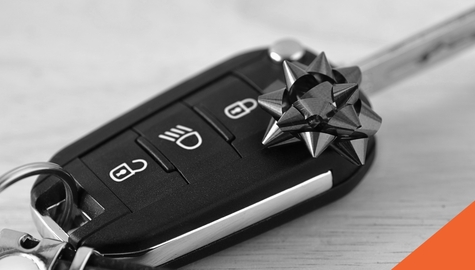The Great Debate: Should You Lease vs. Finance a Car?
Monday, 15 April 2024
Getting a new car might be on your radar in the near future. Shopping for a new vehicle will present a myriad of decisions, including whether you should lease or buy a car.
During your car search, it’s best to understand the difference between buying vs. leasing a car so that you can make an informed decision. After all, the differences between lease vs. finance car options can significantly affect your monthly payment obligations and long-term financial planning. In this blog, we will weigh the pros and cons of buying vs. leasing a car to empower you to make the best choice for your situation.
What is leasing a car?
A lease agreement is made with a dealership, which basically means you will make regular payments to use the vehicle for a set time frame, almost like a long-term rental. Leasing terms are usually 36 or 48 months. At the end of the leasing term, you might be able to arrange to purchase the vehicle outright. Otherwise, you would return the vehicle to get a newer model or even a brand-new vehicle. Your leasing contract will outline the terms.
What is financing a car?
When you finance a vehicle, you take out a loan to repay it. One of the major differences in buying vs. leasing a car is that when you purchase the vehicle, you own it outright once you have finished repaying the loan. Loans can be financed through a dealership or a financial institution.
The Pros & Cons of Buying vs. Leasing a Car
So, is it better to lease or finance a car in Canada? The short answer is: it depends. When deciding whether to lease vs. finance a car, drivers should be aware that either option will impact their initial payment amount and future monthly payments. Leasing may offer lower upfront costs and flexible payments while financing a car can lead to ownership after making a higher down payment in the beginning.
Let's explore the pros and cons of leasing a car to help you make the right choice for your needs:
Monthly Payments
When comparing options to lease vs. finance a car, a key factor to consider is the difference in loan payments:
- Leasing: Leasing a vehicle could lower monthly payments because you are not building equity. This could allow you to pick a more luxurious vehicle that you otherwise could not afford. Premature termination of the lease could result in you having to pay additional fees.
- Buying: Buying costs more upfront, but your payments build equity in the asset, giving you trade-in or resale value. The sooner you pay it off, the sooner you will free up cash flow for other things. Longer financing terms may not be favourable depending on how the vehicle depreciates.
New or Yours?
When deciding whether to lease vs. finance a car, it's important to weigh how this choice affects your ability to update or personalize your next vehicle:
- Leasing: With the newest technology and features, you can get a new car every few years. However, there is less flexibility for customizing the vehicle, and your contract may prevent you from making changes to maintain the dealer’s resale opportunity.
- Buying: From the outset, you will have the freedom to personalize your car however you’d like. Eventually, you will own your vehicle, and you won’t have to deal with the expenses of an aging vehicle and the depreciating value of a trade-in.
Warranty
This may surprise you, but there’s a major difference in what’s covered by warranties when leasing vs. buying a car. It's essential to factor in how wear and tear affect your vehicle and the protections offered through warranties:
- Leasing: Manufacturer warranties cover newer vehicles for 3-4 years. It’s great to know that the warranty should cover any unforeseen repairs. Regular maintenance, such as brakes, oil changes, etc., is your responsibility.
- Buying: A new vehicle will still come with a manufacturer’s warranty, and you can often opt to extend the warranty. As the vehicle ages and your warranty expires, you may have to pay for costly repairs down the road.
Resale
When deciding whether to finance vs. lease cars, it’s best to think about your future. Weigh your future options in terms of the vehicle's resale value and trade-in opportunities:
- Leasing: You don’t have to worry about reselling the vehicle and haggling with an auto dealer or private buyer. On the other hand, your leased vehicle will not have any trade-in value.
- Buying: With equity in the vehicle, you can resell or trade it in at any point. As the seller, you have more control over the price you get for it.
Long-term
Choosing whether to lease vs. finance a car does more than dictate what you’re currently driving. It will also determine your future financial obligations:
- Leasing: If you continue to lease, it will cost more in the long run. You will always have a car payment, which may not be financially ideal for some. You may have the option to purchase the vehicle after making all lease payments and the car lease is complete.
- Buying: Financing to own a vehicle will eventually eliminate your car payment, freeing up your finances to save for a new vehicle or meet other financial goals.
Recommended resources:
New Car Buying Tips
Buying Vs. Leasing Car Payment Calculator
When to lease a car
So, is leasing a car a good idea? Here are some situations where leasing may be right for you.
- You are a business owner and want to deduct leasing costs from your taxes.
- You want to save on maintenance costs.
- You like the idea of brand-new models and luxury features.
- You can afford the payments and don’t care about the trade-in value.
- Your driving habits fit within the lease kilometre limits.
When to buy a car
These are a few situations where you should consider purchasing a vehicle:
- You are a commuter who will exceed the kilometre limit on a lease.
- You want to free up cash flow to meet other financial goals.
- You want to build up equity in an asset for trade-in/resale value.
- You are happy to use the same vehicle for a longer time frame.
Does buying vs. leasing a car affect car insurance?
Generally, there is little to no effect on your insurance, whether you are leasing a car vs. buying it. The only significant difference is that the leasing company will be listed on your policy when you lease the vehicle since it technically owns the car. Since you are required to protect their interest, you will likely have to purchase collision and comprehensive insurance for the vehicle. Collision and comprehensive coverages are smart to get on any new car. Without them, you're on the hook for any damage due to a collision or if it is vandalized or stolen. Learn more about collision and comprehensive coverage here.
When deciding if you should purchase or lease a new vehicle, shopping around for your car insurance is also a great idea. Billyard Insurance Group has access to many trusted insurance providers, which allows us to offer amazing deals. Take advantage of our incredible rates; get a no-obligation quote from one of our BIG brokers. Start your quote now.



